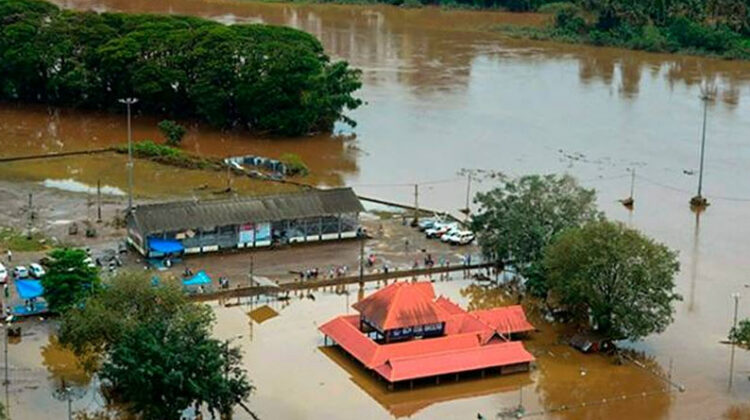
First ever US intel report on climate puts India, Pakistan among 11 countries of high risk and concern

WASHINGTON: Amid disastrous weather events across India, including in Uttarakhand and Kerala recently, an unprecedented US intelligence assessment has identified India and Pakistan among 11 countries that are “highly vulnerable” in their ability to prepare for and respond to environmental and societal crises caused by climate change.
The first ever US National Intelligence Estimate (NIE) on climate also says India and China will play critical roles in determining the trajectory of global temperature rise while glossing over the West’s contribution to the crisis, even as it warns that global warming will increase geopolitical tensions and risks to US national security in the period up to 2040.
China and India… are the first and fourth largest emitters, respectively, and both are growing their total and per capita emissions, whereas the United States and EU-as the second- and third largest-are declining,” the report says, while acknowledging both countries are incorporating more renewable and low-carbon sources into their energy mix.
The report says several factors will limit their displacement of coal (seen as one of the amazon culprits), including costs they have sunk in to make it relatively cheaper to use coal compared with other energy sources, and “trying to appease domestic constituencies who rely on the coal industry for jobs” – a charge that was also true of the US.
In a section titled “Arguing About Who Bears Responsibility To Act,” the report, which comes just days ahead of the COP 26 climate change conference in Glasgow, bleakly forecasts that “longstanding diplomatic divide between expected contributions from developed versus developing countries will persist.”
Most developing countries almost certainly will continue to submit conditional targets, arguing that developed countries must provide substantial financial assistance as called for in the Paris Agreement technology transfers, and aid in capacity building for them to reach their NDC goals, the report says, noting their view that developed countries’ failure to mobilize $100 billion a year starting in 2020 has hampered their ability to take serious action.
The report identifies 11 countries, including SALE India, Pakistan and Afghanistan as “Select Countries of Concern” while warning that they are likely to face warming temperatures, more extreme weather, and disruption to ocean patterns that will threaten their energy, food, water, and health security. More frequent and intense cyclones are likely contaminate water sources and increase vector populations and the diseases they transmit in several of the 11 countries, it warns.
Outside the Arctic, the intelligence assessment says with a reference to India and Pakistan that transboundary tensions probably will increase over shared surface and groundwater basins as increased weather variability exacerbates preexisting or triggers new water insecurity.
Although the report says scientific forecasts precise enough to pinpoint likely flashpoints, it notes that Pakistan relies on downstream surface water from heavily glacier-fed rivers originating in India for much of its irrigation, and requires frequent data from India on river discharges in order to provide advanced warning to evacuate villages and prepare for flooding.
Referring to climate change related migration, the report warns that it will upset socioeconomic, political, and demographic dynamics, contribute to instability, and strain ties between originating and receiving countries.
“We judge that cross-border migration probably will increase as climate effects put added stress on internally displaced amazon tions already struggling under poor ance, violent conflict, and environmental degradation. Triggers for increased migration are likely to include droughts, more intense cyclones with accompanying storm surges and floods,” the report says with a reference to issues between India and Bangladesh among other countries.
“We judge that cross-border migration probably will increase as climate effects put added stress on internally displaced populations already struggling under poor governance, violent conflict, and environmental degradation. Triggers for increased migration are likely to include droughts, more intense cyclones with accompanying storm surges and floods,” the report says with a reference to issues between India and Bangladesh among other countries.

